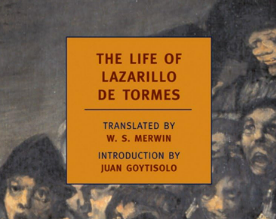Chapter III: How Lazaro Took up with a Squire and What Happened to Him Then
byChapter III follows Lazarillo as he enters one of the most ironic and revealing stages of his early life, marked by both illusion and deprivation. Arriving in Toledo alone and hungry, he meets a gentlemanly figure dressed in fine clothes, whose appearance promises stability and decency. This man, a squire, welcomes him kindly and brings him into his home. At first, Lazarillo believes he has finally found a master who can provide shelter and regular meals. Yet as the days unfold, the truth begins to show: beneath the noble attire lies an empty kitchen and a master whose pride is far richer than his purse. The squire’s home is bare, and food is scarce. Lazarillo, ever adaptive, soon learns that survival again depends on his wits and the charity of strangers.
The squire clings to his dignity, refusing to work or beg, insisting that honor must not be stained by humility. He walks the streets with his head high, hiding hunger behind polite gestures and hollow words. Lazarillo, meanwhile, learns to maneuver the alleyways of Toledo in search of food, often sneaking bites from sympathetic neighbors or scavenging leftovers. He sees firsthand how social status can be nothing more than a costume—one that the squire wears daily with determination, even as his stomach growls. The contrast between their appearances and reality builds a tragic humor throughout their days. While the squire maintains the illusion of control, Lazarillo becomes the real provider, sustaining both of them with scraps. It is through this reversal that the young boy begins to understand the emptiness of status without substance.
One day, the squire brings home a silver coin, and for the first time in days, they plan a proper meal. Lazarillo’s excitement over food clouds everything else, until a funeral procession passes by. The mourners describe the dead man’s destination as a “dark, miserable house where no one eats or drinks,” prompting Lazarillo to panic. He believes they are referring to the very home he lives in. The moment, though laughable in hindsight, reveals how deeply starvation has shaped his imagination. It’s not death that scares him—it’s the idea of more days without bread. His innocence is tinged with absurdity, yet it mirrors a reality too many know: that constant hunger makes humor out of horror.
The squire, for all his charm, begins to speak of his past—a tale that highlights how shallow pride can destroy stability. He once left his village over a petty quarrel with someone of higher rank who refused to greet him with proper deference. This small insult bruised his honor so deeply that he chose exile over reconciliation. Lazarillo listens with increasing disbelief, realizing that his master values pride more than survival. Rather than adapt to hardship, the squire retreats into fantasies of grandeur, defending empty titles while others starve. His obsession with appearances turns even the simplest realities into threats. He sees manual labor as disgraceful, and hunger as tolerable—so long as no one notices.
Eventually, creditors come knocking, and the illusion falls apart. Faced with unpaid debts and no more excuses, the squire slips away in the night. He leaves behind no note, no food, and no plan. Lazarillo wakes to find himself abandoned once again, alone in a house that never truly sheltered him. His master’s pride, built up like a fortress, vanished without a trace. For Lazarillo, this desertion is less a betrayal than a familiar reminder: in a world built on appearances, truth always finds a way to surface. What stays with him is not the hunger, but the absurdity of having to protect a man who could not face the truth of his own poverty.
This chapter captures the satire at the heart of Lazarillo’s journey—a boy growing up in a world where roles are often reversed and where dignity is often misplaced. Through the squire, he learns that honor, when divorced from reality, becomes dangerous. What begins as hope quickly folds into disappointment, yet Lazarillo moves forward, more aware and less trusting. He carries no bitterness, only knowledge. In the struggle between hunger and pride, he learns that pride feeds no one. And once again, he sets off in search of something real—if not comfort, then at least honesty.

